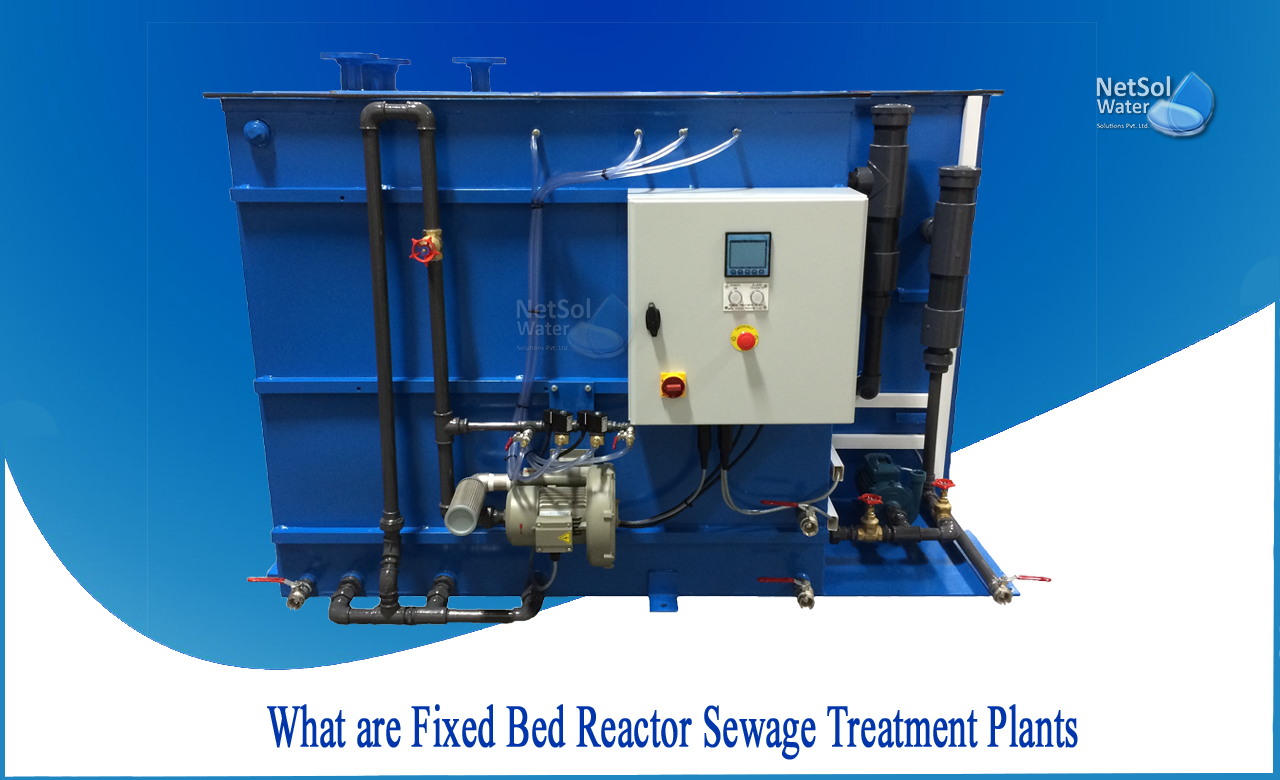What are Fixed Bed Reactor Sewage treatment plants?
Fixed bed, fixed film, or attached growth reactors are biological wastewater treatment processes that use an inert medium such as rock, plastic, wood, or other natural or synthetic solid material to support attached growth of active biomass responsible for degradation on the surface and within the porous structure reactors. Trickling filters and biological discs, as well as moving bed reactors, are common aerobic fixed bed reactors. Anaerobic up flow filters are typical anaerobic fixed film reactors.
What is a fixed bed reactor?
Fixed-bed bioreactors, or FBBRs, are advanced biological wastewater treatment technologies that are used to efficiently treat wastewaters with high to extremely high levels of organic contamination. FBBRs can hold the most contaminant-eating microbes in the smallest area of any biological treatment system, making them space-saving and energy-efficient technologies ideal for treating wastewaters with medium to very high BOD.
FBBR Design
FBBRs are multi-chambered tanks with porous ceramic or foam media packed into the chambers. The media is designed to have a high surface area that encourages biofilm formation while still allowing wastewater to flow through the system. To achieve complete denitrification, chambers can be both aerated and anoxic.
These systems can also facilitate more advanced biological processes by allowing different bacteria cultures to populate separate tank chambers that can be customized to treat your facility's specific wastes.
Applications of FBBR
FBBRs are frequently considered for wastewaters produced in the petrochemical, food and beverage, meat processing, dairy, refinery, and municipal industries, where high BOD levels make other treatment processes impractical.
Concept and design
For large-scale chemical synthesis, fixed-bed reactors are the most common type of catalytic reactor. The process is characterized by various gaseous chemical species reacting on the catalyst surface, which is fixed inside the reactor.
Fixed-bed reactors are classified into two types: adiabatic and multi tubular.
Where there is only one main reaction pathway, adiabatic reactors are used, whereas multi tubular fixed-bed reactors are used for product specificity and separation.
In an adiabatic process, the reactant gases flow uniformly over the fixed bed, whereas in a multi tubular reactor, the feed gas follows the path of a heat carrier, allowing for control of different temperature profiles around the fixed tubular catalysts.
Fixed bed reactor technology and operational principle
To avoid overdesigning of the biology, a consistent filling (buffering) in 24h-compensation is performed, particularly for plants with intermittent filling.
In gastronomic establishments, wastewater from the kitchen is collected separately and routed through a grease separator or other technically appropriate systems (flotation).
The wastewater enters the sewage treatment plant's first tank (chamber) via an inlet channel. It contains the first section of the pre-chamber. The second tank contains the remainder of the pre-chamber as well as the necessary buffer tank. The hydraulic fluctuations are absorbed by it. The pre-chamber and buffer are either arranged above or next to each other. The sludge storage can be set up separately or as part of the pre-chamber.
A filling pump (either compressed air or electrically powered) consistently fills the biological stage (24h compensation). This ensures that the most advantageous operation point can be set even for fluctuating loads later on.
Advantages:
1: Low sludge waste treatment for medium to high BOD wastewaters.
2: When compared to other technologies, this technology has a significantly smaller footprint.
3: Lower initial investment than other treatments.
4: Energy-saving.
Disadvantages:
1: Suspended solids tolerance is low.
2: Suspended solids, as well as oil and grease, may necessitate pretreatment.
3: Depending on the limitations of the discharge, post-treatment may be required.
Netsol Water is Greater Noida-based leading water & wastewater treatment plant manufacturer. We are industry's most demanding company based on client review and work quality. We are known as best commercial RO plant manufacturers, industrial RO plant manufacturer, sewage treatment plant manufacturer, Water Softener Plant Manufacturers and effluent treatment plant manufacturers. Apart from this 24x7 customer support is our USP. Call on +91-9650608473, or write us at enquiry@netsolwater.com for any support, inquiry or product-purchase related query.



